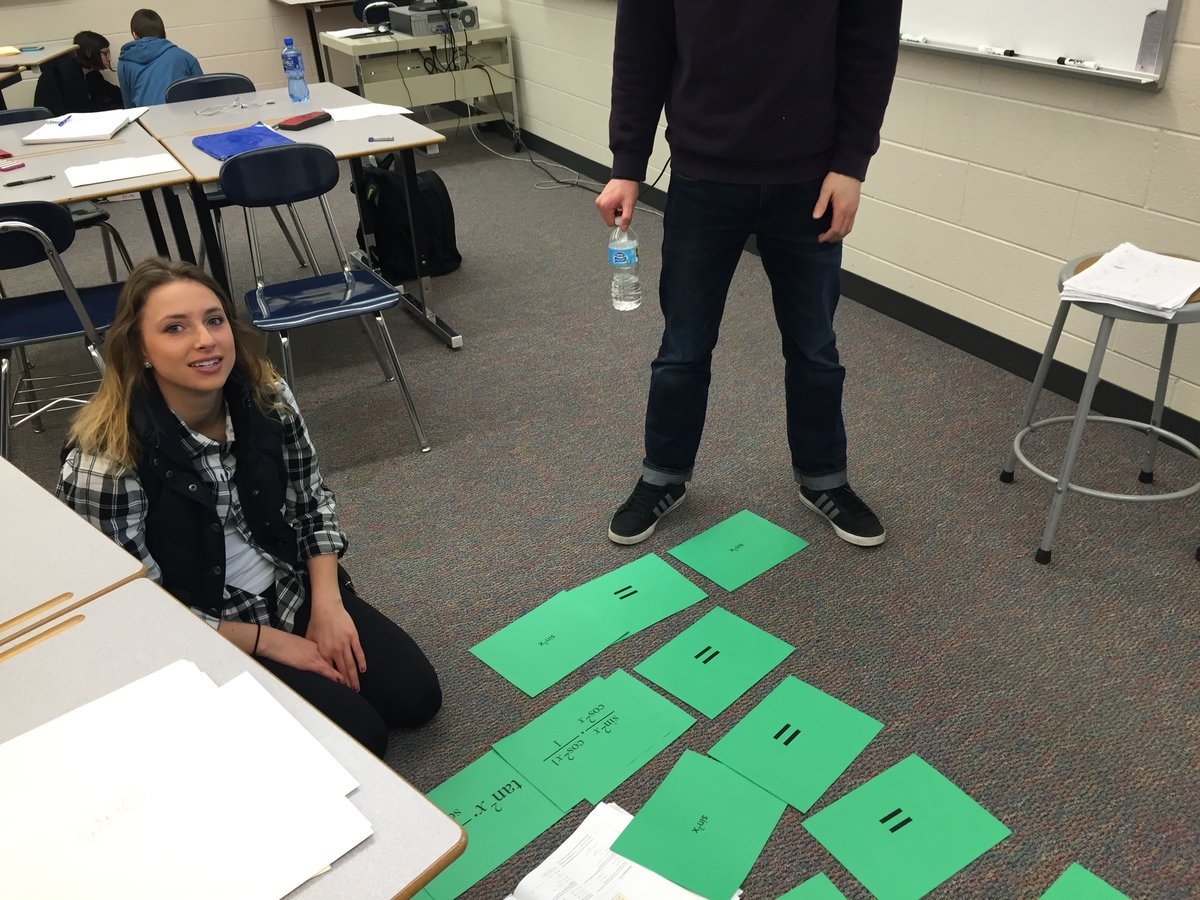The Inquiry Based Flipped Classroom
Zach Cresswell - @z_cress
Presentation
bit.ly/flippedinquiry15

Steve Kelly
Zach Cresswell
Who we are...


Let's Play...
Please open this Desmos Graph
- Create a "better" smiley face
- Learn something new
- Consider how play might fit in your classroom
Share what you learned to #GVMIA15

Reflection
But what changed?



A Hybrid Approach
Some Research...
Learners, especially in school settings, are often faced with tasks that do not have apparent meaning or logic (Klausmeier, 1985). It can be difficult for them to learn with understanding at the start; they may need to take time to explore underlying concepts and to generate connections to other information they possess.
From How People Learn which can be found here.
Some (more) Research...
We are showing that exploration, inquiry and problem solving are not just ‘nice to have’ things in classrooms,” said Blikstein. “They are powerful learning mechanisms that increase performance by every measure we have.” Pea explained that these results indicate the value for learning of first engaging one’s prior knowledge and intuitions in investigating problems in a learning domain – before being presented with abstracted knowledge. Having first explored how one believes a system works creates a knowledge-building relevance to the text or video that is then presented, he said.
From Before Reading or Watching Videos, Students Should Experiment First which can be found here.
Our Idea

Explore
Flip
Apply
Resources here
What happens in class?
Class Design
- Collaboration
- Chromebooks
- Differentiated
Class Design
- Collaboration
- Chromebooks
- Differentiated
Specific Activities
Composition + Operations
On Functions
Skateboarding
Distance v. Time
Skateboarding
Distance v. Time
Skateboarding
Distance v. Time

Skateboarding
Distance v. Time



A Few of My Favorites
Final Thoughts
Thinkers
Collaborators
Tinker...ers
Suggestions
- Collaborate
- Develop your network
- Leverage your resources
Resources
- Precalc Website: slmpprecalc.weebly.com
- Functions Unit Plan
- Trig Unit Plan
- Hashtag: #MTBoS - "Math Twitter Blog-o-Sphere"
- Hashtag: #flipclass
Contact
Twitter: @z_cress
Email: cresswellzach@gmail.com
Website: zachcresswell.org
Presentation: bit.ly/flippedinquiry15
“If I had an hour to solve a problem I’d spend 55 minutes thinking about the problem & 5 minutes thinking about solutions.”
—Albert Einstein
